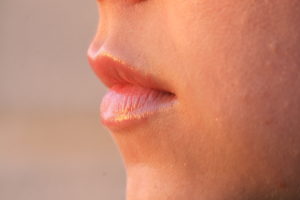
Cold sores are very contagious.
Also called fever blisters, cold sores are the result of the herpes simplex 1 virus (HSV-1). HSV-1 is related to the virus that causes genital herpes, herpes simplex 2. About half of all Americans over 20 have been infected with HSV-1, and 10 percent of infections result in a cold sore. HSV-1 is highly contagious.
Cold sores pose the greatest risk of spreading when they rupture and ooze. That being said, they are also contagious throughout all stages of development, from the first feelings of tingling around the mouth to the end of the healing process.
How to keep cold sores from spreading
- Avoid triggers: Sunburns, stress and being sick can all trigger a cold sore. Get sunblock for your lips and learn stress management techniques. Some foods can also trigger cold sores.
- No kissing: Kissing someone on the mouth can easily pass on the virus; but kissing anywhere on the body risks infection too.
- No sharing: No sharing food, utensils, cups, straws, razors, toothbrushes, lip balm, or lip stick. In short, if it goes near your mouth, keep it to yourself. Even a towel used to dry your face can spread the virus.
- No touching: Touching your cold sore gets the virus on your hands, which you can then transfer to surfaces, objects and other people. Make sure to wash your hands a lot when you have a cold sore.
- No oral sex: Though HSV-2 is the cause of genital herpes, HSV-1 can cause genital blisters and sores.
- Hot water: Washing your items in boiling water kills HSV-1.
- Get treatment: Over-the-counter medicines can help get rid of cold sores faster. Cold compresses can help, as well as some natural remedies.
Do you get cold sores? The Segal Institute’s clinical research study on cold sores is closing next week! Space is limited, so register today!
Source: http://www.everydayhealth.com/skin-and-beauty/how-contagious-are-cold-sores.aspx

